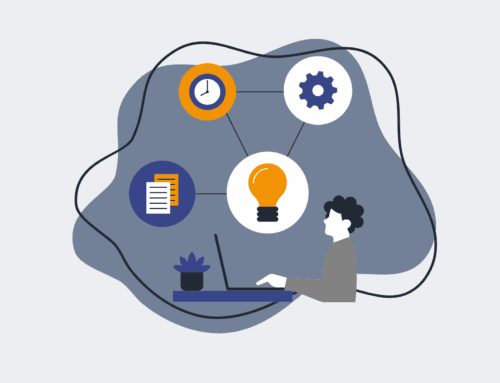Vendor Spotlight: Navigating the AI Resume Parsing Market for Modern HR
In the dynamic landscape of modern human resources, the ability to efficiently and effectively identify top talent is paramount. Yet, HR and recruiting teams often find themselves buried under an avalanche of resumes, each representing a potential candidate but also a significant manual screening effort. This is where AI resume parsing steps in, transforming a traditionally time-consuming and often biased process into a streamlined, data-driven operation. For business leaders striving for operational excellence and strategic talent acquisition, understanding the key players and their innovations in this market is no longer optional—it’s a strategic imperative.
The transition from manual resume review to AI-powered parsing marks a significant leap forward. Initially, basic parsing tools simply extracted keywords, offering only a superficial scan. Today’s AI-driven solutions delve much deeper, leveraging advanced Natural Language Processing (NLP) to understand context, identify nuanced skills, and even infer potential. This evolution means moving beyond just identifying a candidate who lists “project management” to understanding the scope, industry, and impact of their project management experience. The result? A richer, more accurate data set for every applicant, drastically reducing time-to-hire and enhancing the overall candidate experience by focusing on true fit rather than simple keyword matches.
Key Innovators Shaping the AI Resume Parsing Landscape
The market for AI resume parsing is vibrant and diverse, with several key players offering robust solutions tailored to different needs. Understanding their distinct strengths is crucial for HR leaders looking to make informed technology investments.
Specialized Parsing Engines: The Data Powerhouses
At the forefront are dedicated parsing engines, often considered the backbone of sophisticated talent acquisition systems. Companies like Textkernel, Sovren, and Rchilli are stalwarts in this space. These providers focus intensely on deep linguistic analysis and structured data extraction. They excel at converting unstructured resume data into standardized, searchable fields, often supporting multiple languages and complex resume formats. Their strength lies in their accuracy and the granularity of data they can extract—from contact details and work history to specific skills, certifications, and even soft skills inferred from descriptions. These engines are often integrated into larger Applicant Tracking Systems (ATS) or CRM platforms, acting as the intelligent core that feeds clean, usable data into downstream processes.
ATS-Integrated Solutions: Seamless Workflow and Unified Experience
Many modern ATS platforms have recognized the critical need for advanced parsing and now offer native AI parsing capabilities or seamless integrations with the specialized engines mentioned above. Platforms like Workday, Greenhouse, and Taleo often feature built-in or easily configurable parsing modules. The primary advantage here is a unified workflow; recruiters can upload resumes directly into their ATS, and the AI immediately processes the information, populating candidate profiles without ever leaving the system. This integration minimizes data transfer issues, reduces user friction, and ensures that all candidate data resides in a single source of truth, a critical component for efficient HR operations and something 4Spot Consulting champions through its OpsMesh framework.
AI-Powered Screening & Matching: Beyond Basic Parsing
Moving beyond mere data extraction, a new generation of AI tools focuses on predictive screening and intelligent candidate matching. These solutions often incorporate machine learning to analyze historical hiring data, identify patterns of successful hires, and then apply these insights to rank new applicants. Companies in this category might offer features like skill gap analysis, cultural fit assessments (based on resume language), and even automated initial outreach. While still relying on strong parsing capabilities, their primary value lies in helping HR teams prioritize candidates who are not just qualified on paper but also a strong probabilistic fit for the role and organizational culture. This layer of intelligence can dramatically accelerate the shortlisting process and improve hiring outcomes.
Strategic Implementation: Beyond the Technology
While the technology itself is impressive, the true power of AI resume parsing is unlocked through strategic implementation. Simply acquiring a cutting-edge tool isn’t enough; its effectiveness hinges on how well it integrates into existing HR workflows and aligns with broader business objectives. Many organizations struggle with realizing the full ROI of such investments due to poor integration, a lack of clear operational objectives, or the creation of new data silos. This is precisely where a strategic partner becomes invaluable.
At 4Spot Consulting, we emphasize that technology should serve strategy, not dictate it. Our OpsMap™ diagnostic, for example, helps uncover the inefficiencies and potential bottlenecks within existing HR processes before any new technology is deployed. Implementing AI resume parsing requires careful consideration of how the parsed data will flow through your systems—from your ATS to your CRM (like Keap) and even into custom dashboards. Using integration platforms like Make.com, we help businesses connect these disparate systems, ensuring that extracted resume data contributes to a truly automated, intelligent talent acquisition pipeline. This not only reduces human error and low-value work for high-value employees but also ensures scalability, allowing HR teams to handle greater application volumes without proportional increases in manual effort.
The Future of Talent Acquisition with AI
The AI resume parsing market is continually evolving. We anticipate even more sophisticated NLP models capable of understanding not just explicit skills but also potential, growth trajectories, and even aspects of personality from a candidate’s background. The future promises hyper-personalized candidate experiences, proactive talent sourcing driven by AI insights, and a recruitment process that is faster, fairer, and more effective than ever before. For HR leaders, this means shifting focus from administrative tasks to strategic oversight, leveraging AI as a powerful co-pilot in the journey to build exceptional teams.
Embracing AI resume parsing isn’t just about adopting new technology; it’s about fundamentally rethinking how talent is identified, engaged, and nurtured. It’s about building a resilient, agile HR function ready for the challenges of tomorrow’s workforce. The key players in this market offer powerful tools, but the ultimate success lies in a thoughtful, integrated approach that places strategic automation at its core—an approach that 4Spot Consulting is uniquely positioned to deliver.
If you would like to read more, we recommend this article: The Strategic Imperative of AI in Modern HR and Recruiting: Navigating the Future of Talent Acquisition and Management









